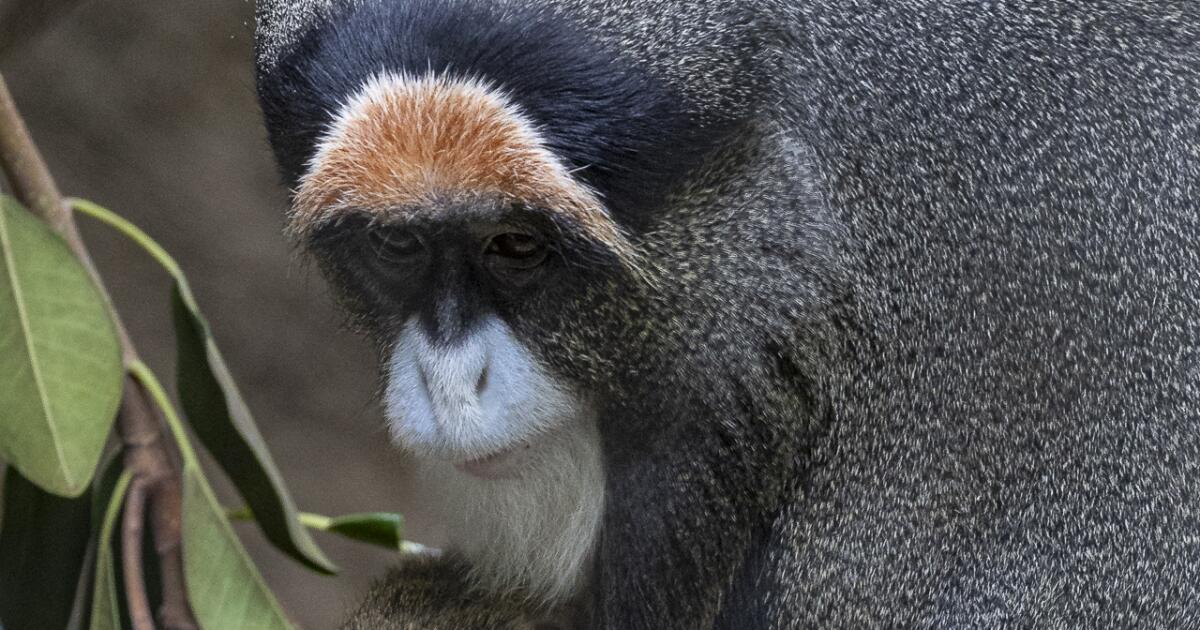
San Diego Zoo Wildlife Alliance officials are celebrating last month’s birth of a tiny primate from Africa known as a De Brazza’s monkey — the first reproduction of the species at the park in 26 years.
Zoo officials say the park didn’t have a viable breeding pair of the monkeys for many years. The species is not endangered.
The baby was born Oct. 28. Parents Lillie and Augustus have been together since May 2021, zoo spokesperson Andrew James said. With the birth, mother, father and baby are the only three De Brazza monkeys at the Balboa Park site.
Since its birth, the infant has been moving around a little and exploring by itself but “is still mostly being carried and held” by its mother, James said.
The gender of the baby is not yet known, and it doesn’t have a name yet. Female De Brazza monkeys weigh an average of 8½ pounds, while the males average around 15 pounds, according to the Franklin Park Zoo.
The monkeys, which have distinctive white facial hair that resembles a beard, live in the zoo’s Lost Forest habitat. Zoo officials say the baby likely will stay close to its mother until it is weaned at around 1 year old.
De Brazza’s monkeys are native to central Africa and were named for Pierre Savorgnan de Brazza, the Italian explorer that founded Brazzaville, the capital of the Republic of the Congo.
In the wild they live in pairs in trees in forested regions near rivers and waterways. They have a loud booming call, and males will sometimes shake branches to keep predators away, the zoo said.
They reach their adult coloration in two to three months, with the beard and mustache typically appearing at about three weeks.
“De Brazza’s monkey babies grow up faster than those of other guenons; by the time they’re five months old, they’re already finding and eating their own fruit,” according to the zoo’s website.
Young monkeys have a yellow rump, and adult males have a bright blue rump during mating season. The zoo’s website also says groups of De Brazza’s have been known to sit completely still for up to five hours before creeping silently into the forest.





